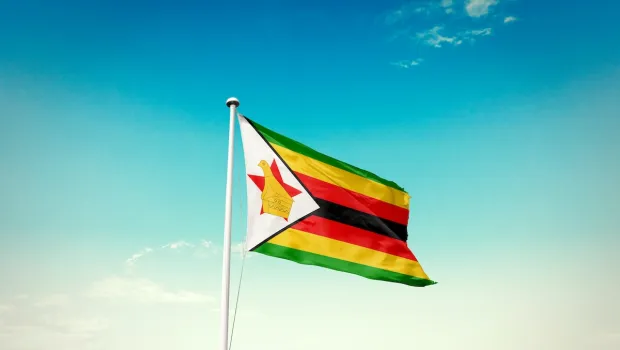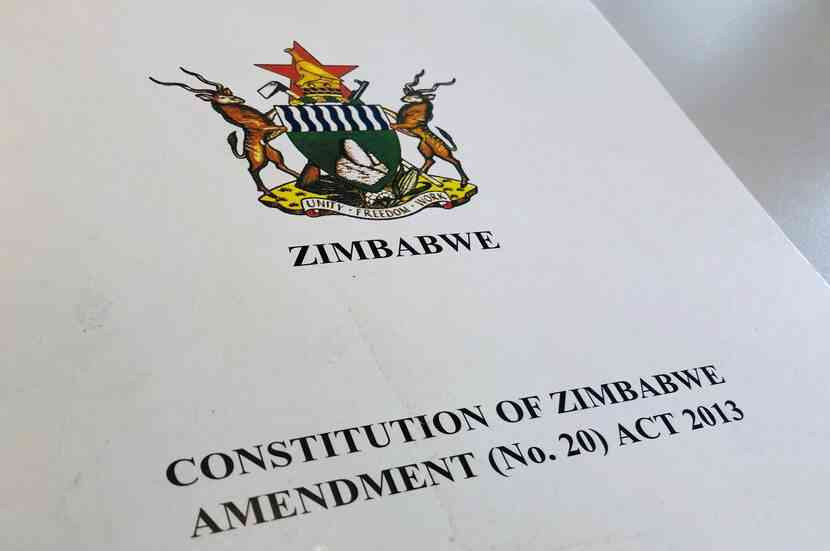
Content creation in Zimbabwe has seen a surge in the number of rags-to-riches stories, with some content creators gladly and without the intention of harm sharing or displaying their staggering earnings with their loyal followers on their social media handles.
Such a display of content creators' wealth is also to inspire other Zimbabweans to take up content creation as a source of earning a living in an economy where decent, formal-paying jobs are scarce.
However, this is also a recipe for possible civil litigation or criminal charges of tax evasion in the future if the Zimbabwe Revenue Authority (Zimra) chases after content creators' staggering earnings from regular comical skits, philanthropical work, interviewing of entrepreneurs and advertising other businesses' brands.
With Zimbabwe having an increase in the number of entrepreneurs, it is important to note that social media content creators play a huge role in promoting upcoming businesses.
Content creation earnings are primarily based on the number of views the content page receives, and secondly, the direction (country) of the views or audience benefits the content creator in media handles such as Facebook, YouTube and TikTok.
This is based on what is known as advertising metrics from the respective country audience is watching.
With many content creators having an audience of a number of fans or followers based in countries such as South Africa, United Kingdom, United States and Canada can possibly see a content creator possibly benefit from the lucrative advertising metrics or adverts appearing from those nations in the video in specific intervals where advert has to play for specific number of seconds for the content creator to monetise.
For example, 1000 views from the audience watching from the United States of America or South Africa can see the content creator receiving 10 times more in revenue than 1000 views from an audience watching back from Zimbabwe, where ad metrics are not so highly lucrative.
- Mavhunga puts DeMbare into Chibuku quarterfinals
- Bulls to charge into Zimbabwe gold stocks
- Ndiraya concerned as goals dry up
- Letters: How solar power is transforming African farms
Keep Reading
This is where labour and tax issues come into question or debate.
From a labour law perspective and a tax law perspective, it is important to question whether content creators should fall under the definition of independent contractors, especially when they take part in advertising goods and services by businesses.
At this point, Zimbabwe does not have a definition of an independent contractor in its labour legislation.
Unlike the labour legislation in South Africa, which clearly defines the meaning of an independent contractor.
Independent contractors are self-employed people who perform work for other people without an employer-employee relationship.
They manage their own tax affairs, and the relationship with the employer is usually on short-term contracts. Furthermore, independent contractors are not eligible for registration with social security by the employer, such as NSSA.
Such responsibility is wholly on the independent contractor. A content creator can be classified as an independent contractor when they advertise goods and services for companies on their personal social media platforms, such as Facebook and TikTok or YouTube.
It is presumed the content creator has been hired to do a job of marketing the brand or product in exchange for payment from the company.
This has become a common trend with Zimbabwean content creators.
Thus, on receiving such income from the company, tax authorities would view this as income which has to be taxed under “Pay as you earn tax (Paye)”.
Furthermore, when a content creator for example, creates comical skits or does whatever content with adverts from the viewers location (mostly viewers outside Zimbabwe) constantly popping up, they are receiving an income upon claiming which passes through the Reserve Bank of Zimbabwe before going into the bank account or collection agency, such as Western Union or money gram or world remit, of the content creator in Zimbabwe.
This is likely to attract curiosity from the Ministry of Finance, which is eagerly looking into exploring different forms of taxation through its parastatal entity Zimra.
A glance into other African jurisdictions, such as Kenya, reveals that content creators are classified as some sort of self-employed entrepreneurs and are indeed taxed by the tax authorities of Kenya.
The popular Finance Act, which saw Gen Z protesting and rioting and storming into the parliament buildings back in September 2024, also affects digital content creators.
Digital content creators have to cede 15% of their earnings to tax authorities.
In the case of Zimbabwe, caution must be taken into account that some content creators are still trying to eke a living from content creation, and many may not be armed with legal knowledge to enforce their rights against possible taxation by Zimra.
Furthermore, hiring agents to do the paperwork of tax affairs by some content creators can see them being vulnerable to swindlers who may take advantage of their lack of familiarity with legal jargon, tax calculations, and tax procedures of filing tax returns.
Another challenge is that content creators may not be keeping documentation evidence of their earnings, thus making them vulnerable to Zimra having discretion to make estimates on taxable earnings should such a directive possibly go ahead.
I would propose that this matter be addressed holistically by Zimra, members of the arts and culture industry, the Ministry of Arts and Culture and content creators to deliberate on the way forward in meeting under one roof.
This would avoid issues of tax evasion, as it is evident that content creators are not only sustaining themselves but also empowering people in their communities when they embark on projects like building properties, doing other side hustles using capital from content creation.
This would reduce the tax obligations of the content creator under what can be classified as charity or philanthropic activities.
Secondly, I would also propose to mitigate the risk of people who may not be known, their capabilities of being misunderstood to swindle content creators, that financial literacy programmes be in place, and content creators be encouraged to join or take up such programmes.
This cuts down on feeling cheated and also creates a sense of patriotism amongst content creators on the need to meet tax obligations without being haunted by Zimra or enforcing agencies such as the Anti-Corruption Commission.
It is equally important to highly appreciate the work of the most successful content creators who have drawn inspiration from other influential African content creators.
Content creators are the link and source of inspiring Zimbabweans in the diaspora to prioritise investing back in tangible immovable assets or income-generating projects such as animal husbandry or horticulture by restarting their lives through entrepreneurial practices.
This has to be used as a means of a lenient measure by Zimra on the role of content creators as ambassadors of Zimbabwe and creating that sense of patriotism amongst diasporic Zimbabweans to invest back home.
Another form of leniency would be to make content creators aware when taxation of their revenue would commence and what action to start taking in preparing their accounts.
In the event Zimra goes ahead with considering taxing content creators, it would be seen as a clear ambush if a proclamation or directive is issued by the Industry or Finance minister targeting content creators without prior consultation.
- Dr Hoitisimolimo Mutlokwa is post doctoral fellow at the Centre for Labour Law, University of the Free State, Bloemfontein, South Africa.











